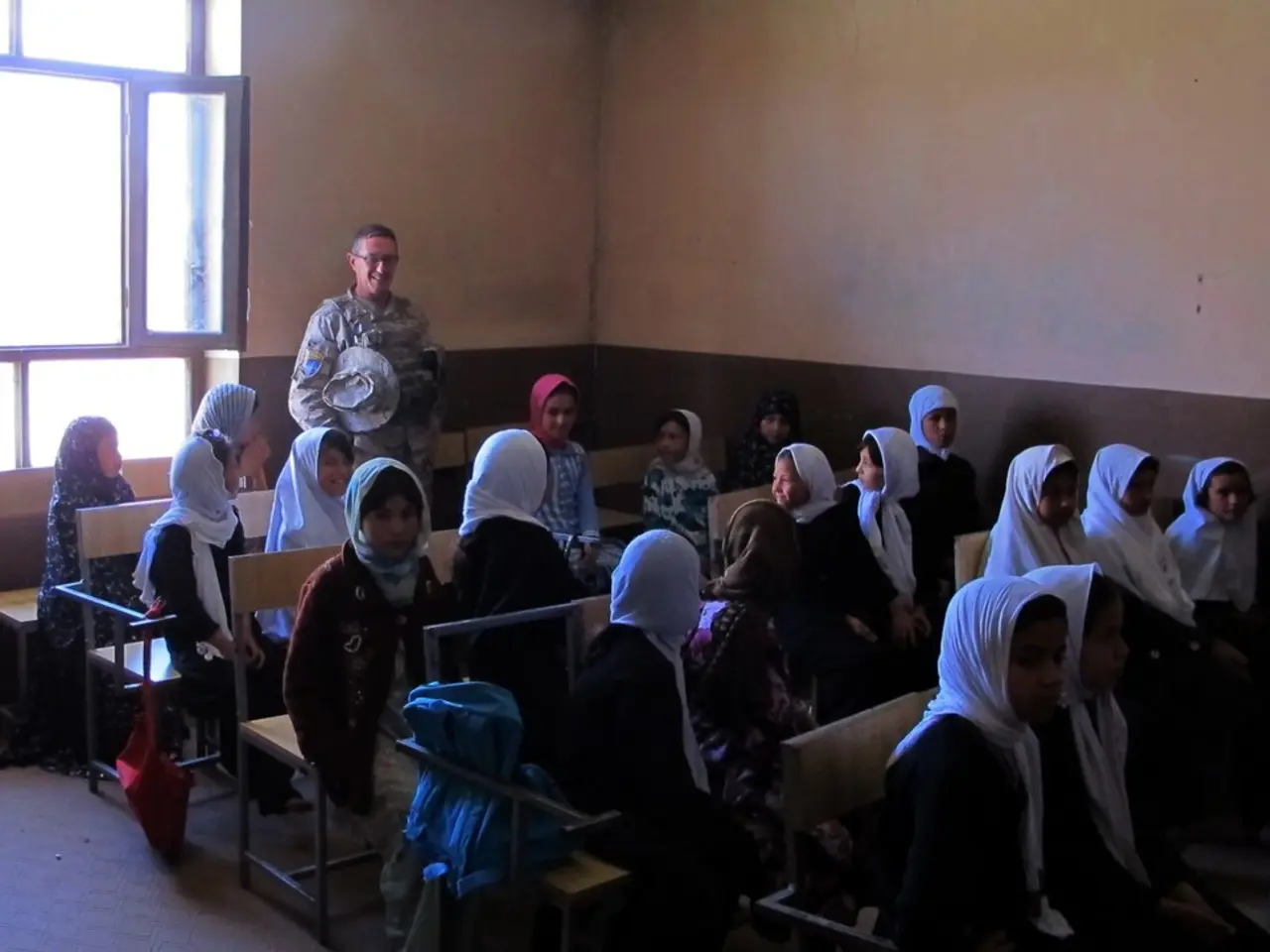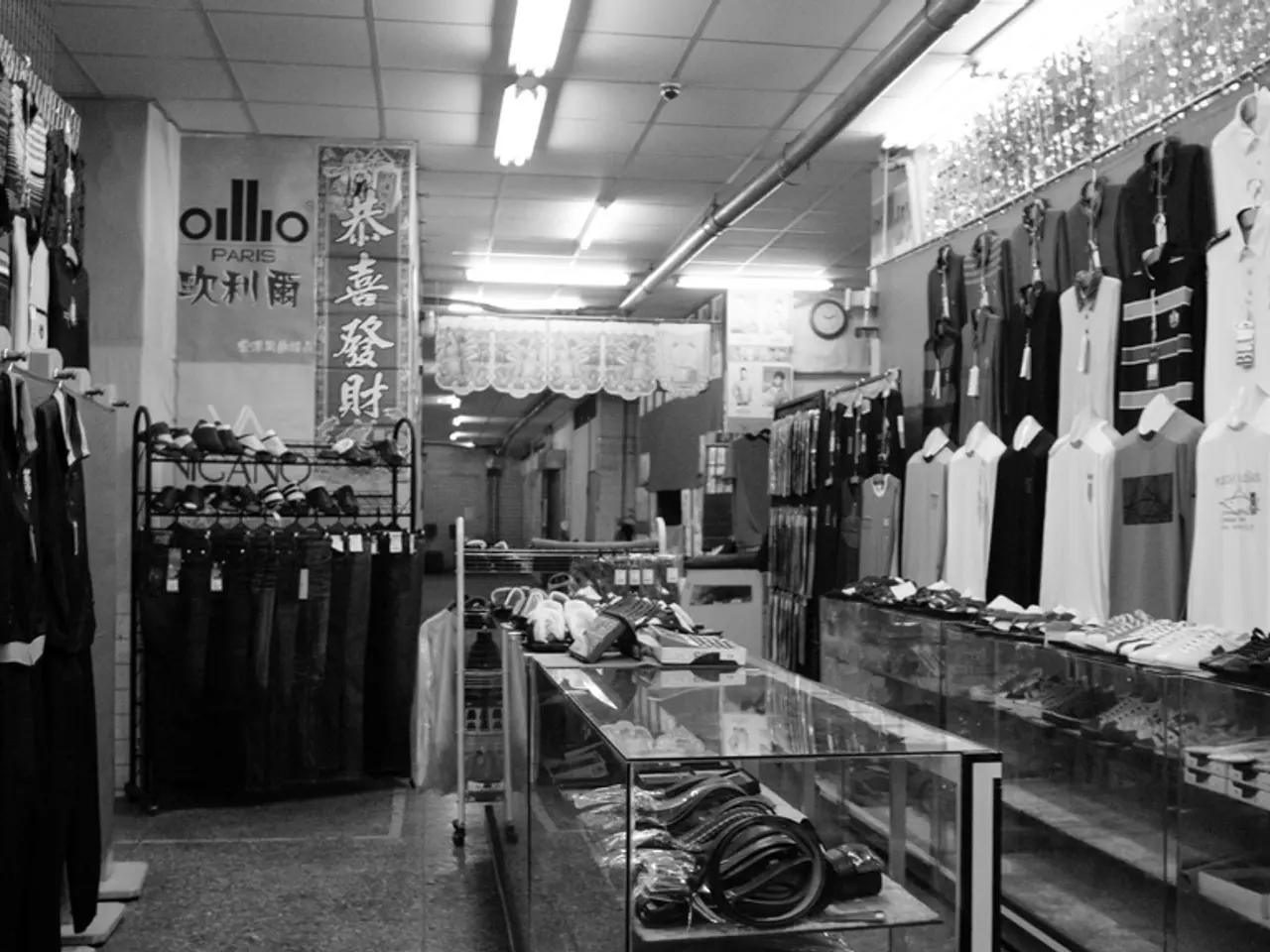Educational Institutions in Kharkiv: On-site Conditions During Wartime
In the heart of Ukraine, Kharkiv - the country's second-largest city - continues to face ongoing life danger, with teaching mainly taking place online due to constant bombardment [1]. This war-torn environment has presented unique challenges for universities, particularly in employee retention and managing dispersed teams.
The comprehensive conflict in Ukraine has highlighted structural imbalances in mobility, with Ukrainian men facing travel restrictions [2]. This has resulted in a severe demographic crisis, with a significant portion of working-age men conscripted into the military or having fled abroad, reducing the available workforce [3]. Universities, like many other sectors, struggle to retain key staff who might leave the country for safety or better opportunities.
To combat this, institutions must rely heavily on digital tools to maintain communication, collaboration, and institutional cohesion. However, the disruption caused by the war makes consistent engagement and team dynamics management difficult, especially given uneven access to stable internet and resources [1].
In addition to remote collaboration, universities face economic and productivity pressures. The overall labor market in Ukraine is strained by the war and related sanctions, creating a need for compensatory measures such as paying housing costs or bonuses to retain workers [1]. Universities may adopt similar incentives or flexible arrangements to retain employees who remain or encourage expatriates to stay connected and contribute remotely.
Political and social tensions also pose a challenge. Issues like government corruption and uneven conscription policies cause mistrust among expatriates and staff, complicating efforts to foster loyalty and stable team relations. Universities must manage internal dynamics carefully, building transparent and trust-based communication channels to sustain morale and collaboration despite scattered teams [3].
While direct detailed strategies from universities in Kharkiv are not extensively documented, these broader conditions highlight that institutions must adopt flexible remote working frameworks, provide targeted incentives, and engage in trust-building efforts to manage retention and team dynamics amid wartime displacement and demographic challenges.
Interviews with staff members revealed significant tensions between those who stayed in Kharkiv and those who left the city. Those who remain face ongoing life danger, while those who left must adapt to the host country while maintaining their connection to Ukraine [4]. Women abroad bear the brunt of childcare and the pressure to adapt to a new country, impacting their academic productivity [5]. Those who leave the country are no longer included in Ukraine's academic agenda, leading to asymmetric career trajectories [5].
In summary, universities in Kharkiv address employee retention and team management by adapting to remote work realities, offering compensation or support for displaced staff, and navigating complex demographic and political dynamics to sustain their educational mission despite ongoing conflict [1][3].
Sources: [1] Ukraine Research Network@ZOiS. (2025). Study on Universities and Research Institutes in Frontline Areas. Retrieved from https://www.zois.de/en/ukraine-research-network/ [2] BBC News. (2022). Ukraine crisis: Men aged 18-60 face travel bans. Retrieved from https://www.bbc.com/news/world-europe-61375506 [3] The Kyiv Independent. (2022). Ukraine's Brain Drain: The Brain Gain of Other Countries. Retrieved from https://kyivindependent.com/ukraine-brain-drain-brain-gain-of-other-countries-5306491 [4] The Guardian. (2022). Ukrainian academics struggle to adapt to life in exile. Retrieved from https://www.theguardian.com/higher-education-network/2022/apr/07/ukrainian-academics-struggle-to-adapt-to-life-in-exile [5] The Conversation. (2022). Ukraine's war is causing a brain drain in Ukrainian academia. Retrieved from https://theconversation.com/ukraines-war-is-causing-a-brain-drain-in-ukrainian-academia-178616
- Given the ongoing conflicts and travel restrictions in Ukraine, universities are compelled to offer targeted incentives such as housing support or bonuses to retain key staff who might leave the country for safety or better opportunities, due to the labor market strain and the resulting demographic crisis [1].
- In the midst of political and social tensions, universities must prioritize building transparent and trust-based communication channels to maintain morale and collaboration among staff scattered across different regions, especially women who bear the brunt of childcare and the pressure to adapt to a new country, impacting their academic productivity [3].




